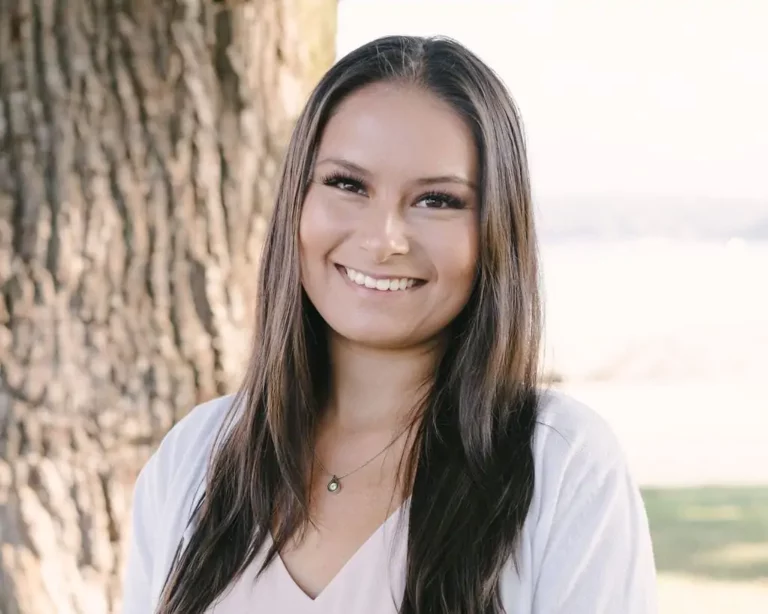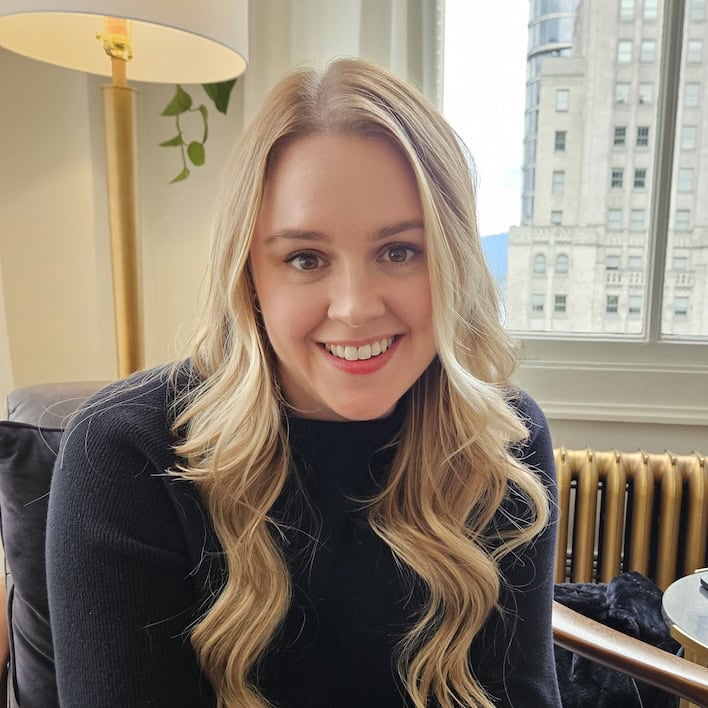Cognitive Behavioural Therapy Vancouver
CBT Counselling for Anxiety & Depression
Thoughts can be powerful, but they’re not always accurate. Many of us go through life influenced by negative self-talk, unhelpful beliefs, and rigid patterns that keep us stuck.
Cognitive Behavioural Therapy (CBT) is a structured, evidence-based approach that helps you examine how your thoughts, emotions, and behaviours are connected – so you can respond to life with more flexibility and resilience.
Whether you’re dealing with anxiety, depression, low self-esteem, panic attacks, or unhelpful habits, CBT can offer practical tools to help you shift your thinking and feel more in control of your inner world.
Is your inner dialogue making things hard?
CBT is especially helpful for people who find themselves caught in thought spirals, harsh self-judgment, or patterns of avoidance. You may recognize yourself in some of the following:
- Constant worry or overthinking
- Difficulty controlling negative or catastrophic thoughts
- Feeling stuck in cycles of guilt, shame, or self-blame
- Avoiding people, places, or decisions out of fear
- Struggling with motivation, follow-through, or perfectionism
- Fear of failure, rejection, or being “not good enough”
- Feeling like your thoughts are running the show
How CBT can help
CBT focuses on identifying and reshaping the thought and behaviour patterns that contribute to emotional distress. It’s present-focused, collaborative, and skill-based – designed to help you build insight and take action at the same time.
With the support of your ARC therapist, CBT will help you:
- Recognize and interrupt negative or distorted thinking
- Understand the link between thoughts, emotions, and behaviours
- Learn new strategies for managing anxiety, low mood, or fear
- Respond to difficult situations with more flexibility and balance
- Build healthier habits and coping tools
- Improve your confidence, self-compassion, and decision-making
Let's work through this together
You don’t have to stay stuck in cycles of negative thinking or reactive behaviour. CBT can help you break free from old patterns and build a more empowered, intentional relationship with yourself and the world around you.
At ARC, our therapists are trained in CBT and tailor the process to your unique needs. Whether you’re dealing with anxiety, depression, self-doubt, or stress, we’ll walk alongside you every step of the way.
Meet Our Vancouver Therapists

Tianna Bobariu
Registered Clinical Counsellor (RCC)

Amenda Kumar
Registered Social Worker (RSW)

Kristen Rattray
Registered Clinical Counsellor (RCC)

Kiana Maeda
Registered Clinical Counsellor (RCC)

Jack Wong
Registered Social Worker (RSW)

Danielle Simpson
Registered Clinical Counsellor (RCC)

Elise Millett
Registered Social Worker (RSW)

Lilian Wang
Registered Clinical Counsellor (RCC)
Getting The Help You Need is Easy
Reach Out
Fill out our easy contact form. All we need is your basic info, and a few words about what brings you to therapy.
Free Consultation
We’ll reach out to schedule your complimentary consultation. We’ll discuss your goals, questions, and make sure we’re the right fit.
Start Therapy
Feeling ready? We’ll book your first session and create a personalized plan to help you live the life you deserve.
Our Step-by-Step CBT Process
Creating Safety & Setting Goals
We begin by building a strong therapeutic relationship. You’ll talk about what’s bringing you in and what changes you’d like to see. Together, we’ll define clear, meaningful goals for therapy.
Tracking Patterns
Together, we'll begin noticing your automatic thoughts and how they affect your emotions and behaviour. This may involve tracking thoughts between sessions or exploring recent situations in session to understand your reactions.
Identifying Thinking Traps
Many of us fall into common patterns of unhelpful thinking – like catastrophizing, black-and-white thinking, or mind-reading. We’ll work together to recognize these patterns and begin creating some distance from them.
Challenging & Restructuring Thoughts
You’ll learn how to gently question the thoughts that fuel distress and replace them with more balanced, realistic perspectives. Over time, this helps shift how you feel and how you respond to challenges.
Behavioural Experiments & Exposure
Depending on your goals, we may incorporate small behavioural experiments or exposure work. These strategies help reduce avoidance, reinforce new ways of thinking, and build confidence in real-life situations.
Building Long-Term Skills
As therapy progresses, we’ll reinforce the strategies that work best for you and prepare you to maintain progress outside of sessions. You’ll leave with a toolkit of skills you can return to long after therapy ends.
Frequently Asked Questions
What is CBT?
Cognitive Behavioural Therapy (CBT) is a structured, evidence-based form of talk therapy that helps you understand how your thoughts, emotions, and behaviours are interconnected. In CBT, you’ll work collaboratively with your therapist to identify patterns that may be keeping you stuck, and develop practical tools to create meaningful change. It’s present-focused, goal-oriented, and proven to help with a wide range of concerns.
What kinds of issues does CBT help with?
CBT is one of the most widely researched therapies—and for good reason. It’s highly effective for anxiety, depression, panic attacks, OCD, phobias, stress, social anxiety, low self-esteem, and unhelpful behaviours like avoidance or people-pleasing. It can also be helpful for anger, perfectionism, health anxiety, and life transitions. Your therapist will tailor CBT to your unique goals and challenges.
Will I have homework with CBT?
Often, yes—but it’s collaborative and manageable. Homework in CBT might include tracking thoughts and emotions, practicing new coping strategies, or trying out different ways of responding to challenging situations. These between-session exercises help reinforce what you’re learning and support progress. That said, it’s always adapted to your pace and capacity—you won’t be expected to take on more than feels doable.
How long does CBT usually take?
This depends on your goals and the nature of what you’re working on. CBT is often a shorter-term therapy, with many clients noticing significant change within 6-12 sessions. However, for deeper or more long-standing issues, longer-term work may be more helpful. We’ll check in regularly to see what’s working and adjust your therapy plan together.
What if I don’t know what my thoughts are?
You’re not alone—many people come to therapy unsure of what they’re thinking or feeling. CBT is designed to help you build that self-awareness over time. Your therapist will guide you in slowing things down, noticing patterns, and gently becoming more curious about your internal experience. You don’t have to have it all figured out to begin.
Is CBT just about positive thinking?
Not quite. CBT isn’t about “thinking happy thoughts” or ignoring difficult emotions. It’s about helping you recognize unhelpful thought patterns and replace them with more realistic, balanced perspectives. The goal is to reduce distress—not by pretending everything’s fine, but by shifting how you relate to challenges and supporting more flexible, empowered responses.
What if CBT feels too structured or generic?
That’s a valid concern, especially when it comes to more “skills-based” approaches. While CBT has a structured framework, it’s not meant to be rigid or impersonal. At ARC, we adapt the process to fit who you are, not the other way around. Some sessions may feel practical and strategy-focused, while others might involve slowing down to understand what’s happening emotionally or relationally.
CBT works best when it feels relevant and responsive. We’ll collaborate with you to make sure the approach supports—not overrides—your lived experience.
Can't I just do CBT on my own?
It’s true that many CBT tools exist in books or online—and they can be a wonderful starting point. But CBT with a trained therapist goes much deeper. Your therapist will tailor the approach to your personal history, values, and day-to-day struggles, bringing insight, flexibility, and support that self-guided tools can’t offer.
We often hear from clients who “tried CBT before” but only started seeing real change when someone helped them apply the tools in a way that actually fit their life. Good CBT isn’t one-size-fits-all. It’s collaborative, nuanced, and deeply personal.
What if my struggles are rooted in the past? Can CBT still help?
Yes. While CBT focuses on present-day patterns, it recognizes that many of those patterns have roots in past experiences. If helpful, your therapist may explore early learning, attachment, or relational experiences to better understand why certain thoughts or behaviours developed. From there, we work on shifting what’s no longer serving you in the present.
Is CBT covered by insurance?
Yes. Most extended health plans in Canada cover therapy with a Registered Clinical Counsellor (RCC). We’ll provide you with a receipt after each session that you can submit for reimbursement. Many clients receive reimbursement within a few business days, depending on their provider.
How do I start CBT therapy?
The first step is to reach out and book a complimentary 30-minute consultation. This gives you the opportunity to meet with one of our therapists, ask questions, and get a feel for whether CBT seems like the right fit for your needs and goals.
If it feels like a good match, we’ll work with you to find a session time that fits your schedule, and start setting goals for therapy. If not, we’re happy to recommend another therapist or approach that may be a better fit. Our priority is to help you get the support that feels right for you.
A Message of Support from Our Director

Hi, I’m Kelsey, the Clinical Director here at ARC. I want to start by saying something that doesn’t get said enough – it’s okay to need support.
If you’re reading this, you might be feeling overwhelmed, stuck, or simply not yourself. At ARC, we understand how deeply personal it is to reach out for help. That’s why we’re so intentional about the care we offer. Every therapist on our team is here because they lead with heart, bring strong clinical training, and truly care about helping people feel better.
We also know that feeling safe in therapy means feeling seen and respected. That’s why we’re committed to creating an inclusive space – one that honours your identity, your culture, and your lived experience.
My role is to make sure your experience here is thoughtful, safe, and meaningful – from your very first point of contact to the support you receive in therapy. If you’re unsure about where to start, I encourage you to reach out for a free consultation. I’ll personally take the time to read your request and match you with one of the therapists on our team.
You’ve already taken the first step by being here. When you’re feeling ready, take the next step by reaching out – and we’ll walk the rest of the way together.
Take the next step towards feeling better today

Location
470 Granville St, #922
Vancouver, BC, V6C 1V5
Our Hours
Mon – Fri: 09:00 – 21:30
Sat – Sun: 09:00 – 20:30
